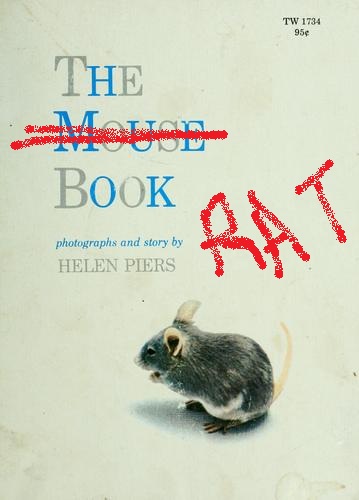[the book rat project] Week 17: Very, very good, but not quite a miracle.

It's time for
another installment of the Book Rat Project, the sustained experiment in which
a book critic (my Phoenix colleague Eugenia Williamson) attempts to act
as a human algorithm for a willing subject (me).
This time around
Eugenia picked The
Age of Miracles by Karen Thompson Walker. She based her pick on my general
love of speculative fiction, and the flood of fantastic blurbs Walker has
received for her freshman effort.
 On a Saturday
morning, a few months before her thirteenth birthday, Julia and her friend
Hanna awake after a sleepover. It seems like just another ordinary weekend;
Julia’s mother takes the car and goes out for bagels while her father puts on
the coffee pot. Moments later, Julia’s mother returns in a state of panic,
storms into the house and turns on the television. There are no images of
burning buildings, no riots or floods, and this somehow makes the news all the
more ominous: during the night the rotation of the Earth has inexplicably
slowed; the day has grown by fifty-six minutes, no one knows why, and the
slowing is only expected to get worse.
On a Saturday
morning, a few months before her thirteenth birthday, Julia and her friend
Hanna awake after a sleepover. It seems like just another ordinary weekend;
Julia’s mother takes the car and goes out for bagels while her father puts on
the coffee pot. Moments later, Julia’s mother returns in a state of panic,
storms into the house and turns on the television. There are no images of
burning buildings, no riots or floods, and this somehow makes the news all the
more ominous: during the night the rotation of the Earth has inexplicably
slowed; the day has grown by fifty-six minutes, no one knows why, and the
slowing is only expected to get worse.
While it might be
characterized by some as another entry into the genre of apocalyptic fiction,
that fact is that this novel is more than that. The narrative is conveyed as
one long, sustained flashback, a record being left behind by a lonely woman
that came of age on a mysteriously dying planet, a woman that has spent her
life confronting questions without definitive answers and problems with, at
best, temporary solutions.
At its core The
Age of Miracles is about confronting the unknown. It is a novel of less science—though
Walker has done an admirable job on that front—and more fiction.
 In many ways The
Age of Miracles is a more character driven, more elegant version of Spin,
by Robert Charles Wilson (also worth a read); Wilson gives his readers a grand--if overwritten--tome, filled with brilliant scientists, new-age theologians, and powers that
are, temporarily, beyond human understanding. In contrast, Thompson’s The
Age of Miracles feels microcosmic, efficiant , stripped down; there are no answers or
reprieves, just the voice of Julia as she struggles to find her place in a
changing world that makes very little sense.
In many ways The
Age of Miracles is a more character driven, more elegant version of Spin,
by Robert Charles Wilson (also worth a read); Wilson gives his readers a grand--if overwritten--tome, filled with brilliant scientists, new-age theologians, and powers that
are, temporarily, beyond human understanding. In contrast, Thompson’s The
Age of Miracles feels microcosmic, efficiant , stripped down; there are no answers or
reprieves, just the voice of Julia as she struggles to find her place in a
changing world that makes very little sense.
It’s a voice that, while not pitch perfect, is well worth hearing
and enjoying.
The Book Rat
Letter Grade: A-
















